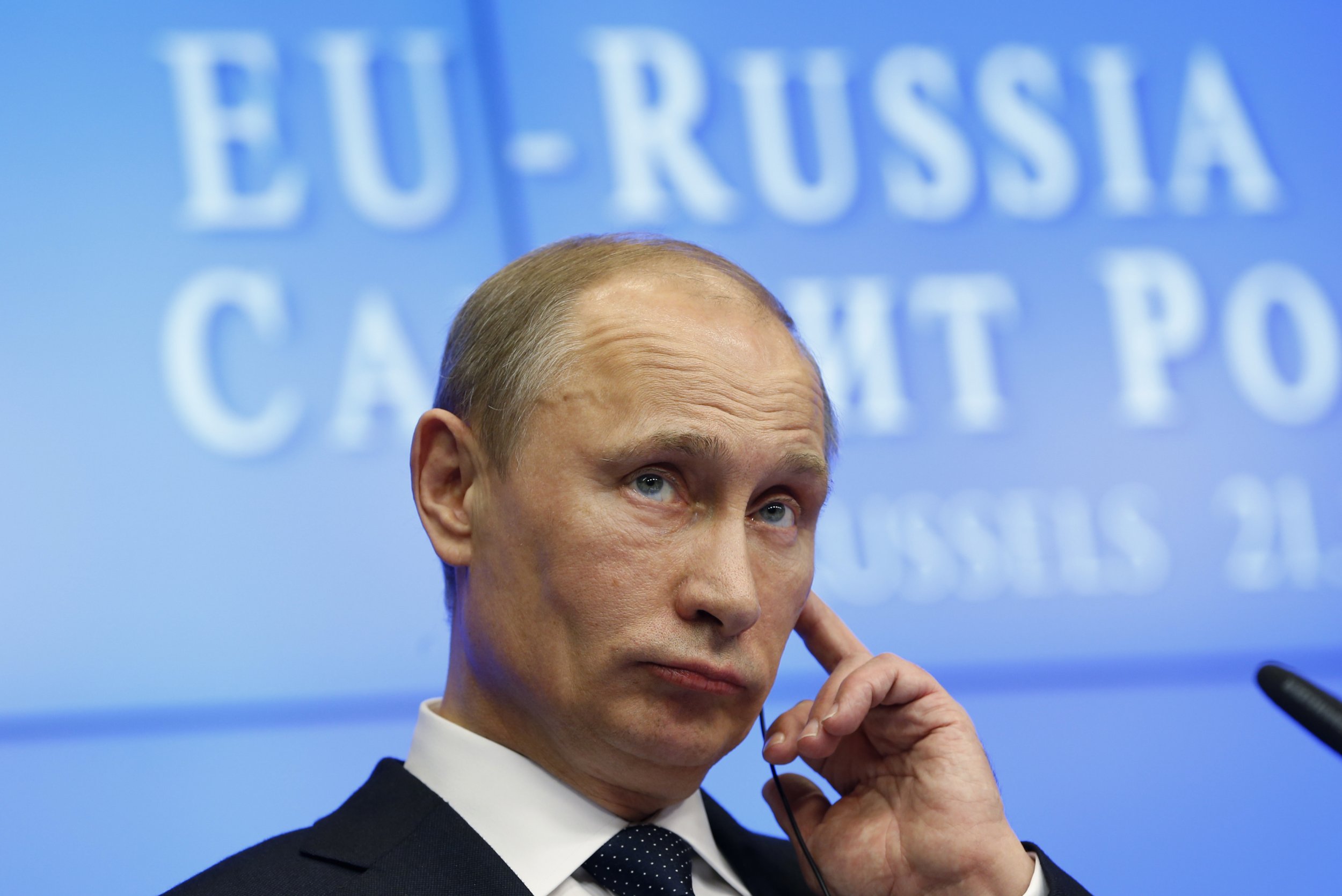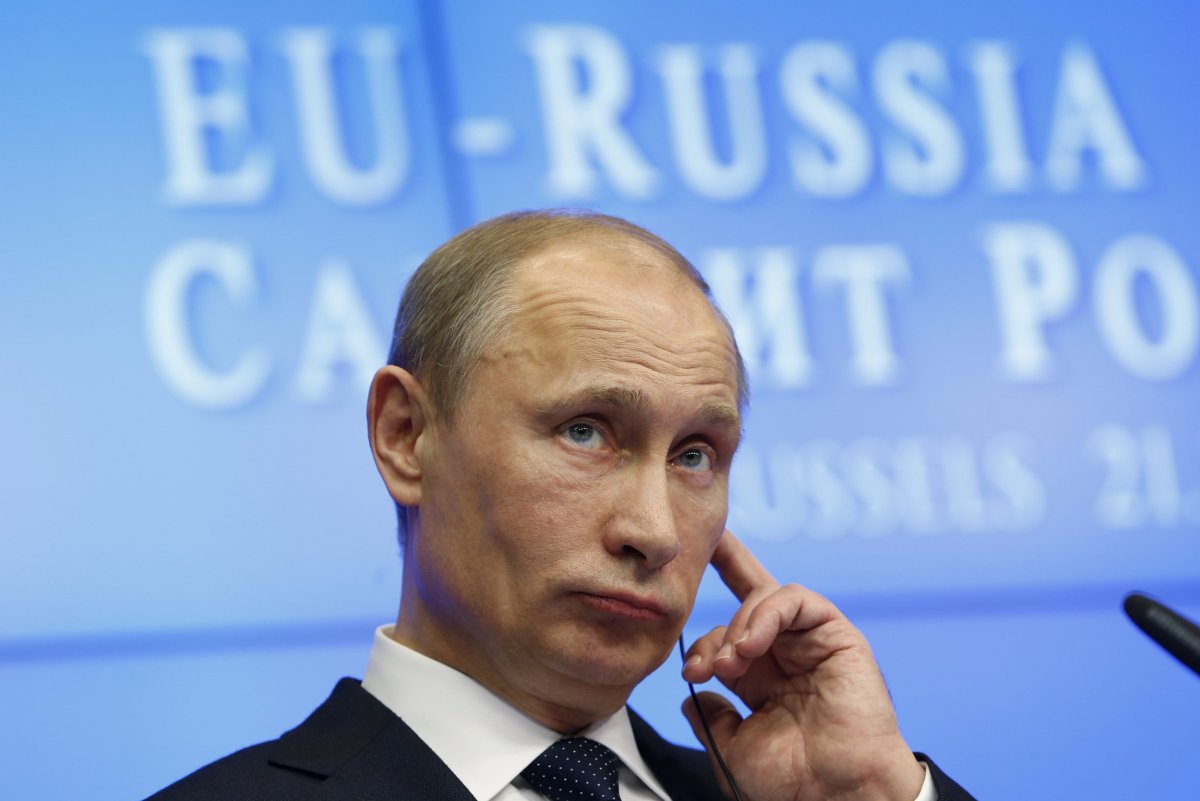
This article first appeared on the Chatham House site.
For all its pretenses toward the primacy of sovereignty, the Russian leadership is rarely shy about venting its views on the foreign policies and geopolitical orientations of other states. Yet on the question of Britain's membership of the European Union, the Kremlin has been relatively silent.
Overt efforts to swing the U.K. one way or another are few and far between. An assessment by former NATO official Ben Nimmo of stories in the sanctioned parts of Russian media has found a small numerical bias in favor stories promoting the advantages of Britain leaving the EU, but the evidence overall is slim.
And despite the most prominent remain campaigners, including Prime Minister David Cameron suggesting that a vote to leave would be a boost for Vladimir Putin, Russia's ever-vocal embassy in the U.K. has released a statement claiming that it has no view on the matter.
But as one former Western government analyst put it to me recently, it is important not to let prima facie evidence overrule common sense. It is probable the Kremlin does have a view, even if it is disputed internally, and identifying this can help determine the effect on U.K.-Russia relations if Britain votes to leave the EU and what the future trajectory of the relationship might be if it remains in.

The Views From Russia
Despite the official line, opposing views on how Britain "should" vote have been expressed, even in the officially sanctioned Russian press. One particular strand has suggested that Russia would be better off if Britain remained in the EU because Brussels mollifies some of Britain's supposedly "Russophobic" tendencies.
Meanwhile, the analyst Dmitry Suslov has argued that it is Europe's fragmentation that is responsible for the poor state of Russian-European relations, so a more joined-up Europe would improve Russia's relations with all the member states, including the U.K.
Though he doesn't say so, such a rapprochement presumably depends on whether a more cohesive Europe would accommodate Russia's perceived interests in possessing areas of control beyond Russia's borders.
A further Russian-espoused argument favors a vote to remain, for fear that Brexit would make either Germany or NATO (or both) stronger—which would be to Russia's disadvantage.
However, it is surely more credible that, from a Russian perspective, a diminished EU following a U.K. exit is also going to weaken NATO and give Russia a louder voice in European affairs.
Sergei Utkin, another prominent analyst, and Alexey Pushkov, the chair of the Duma's foreign affairs committee, have suggested that the U.K. will be looking for new friends once it has shunned Europe. Russia, they say, will be waiting with open arms.
Other Russian arguments in favor of a withdrawal include: The EU has rejected Christian values, so Britain should reject the EU; and Europe is disintegrating, so the Russians currently living inside it are better off returning to Russia.
Logically, then, Russia's beleaguered opposition leaders should be calling for the opposite of what they believe the Kremlin desires (for they, like the Russian government they loathe, can also take a zero sum approach). And indeed they do. Garry Kasparov, for example, has written that if Putin wants the U.K. to leave the EU, the obvious choice must be to remain in.
Such a cacophony of viewpoints leads to several possibilities:
First, there is no single view from Russia on the outcome of Britain's EU referendum—perhaps not even from the Kremlin.
Second, in the greater scheme of things, it does not matter very much. Russia has bigger problems.
Third, that multiple views constitute the effective deployment of smoke and mirrors: the putting-out of several viewpoints in order to confuse.
Fourth, that the Kremlin does have a view—that the U.K.'s withdrawal from Europe is preferable—but it knows its reach is limited in the U.K. (possibly even detrimental) and thus has resolved to do very little.
There is probably some truth to all these explanations, but there are good reasons for thinking the fourth is the most persuasive.
It can be inferred that from the Kremlin's perspective, a British split from the EU would erode or destroy the unanimity of action—most visibly manifested in sanctions—that Russia's behavior has been engendered among EU member states.
A departure from the EU surely strengthens the disintegrative processes already at work in Europe and validates the notion that Russia is, in fact, a European power too, and it is the U.S. that is alien—or at least that Europe is continentalist with Russia as a partner, rather than being outside on the edge of a united continent.
These inferences, regarded as conspiracy in some articles in the Russian press, are given further credence considering Russia's closer relations with political parties throughout Europe that have anti-European sentiments (and, for the most part, hard right-wing views). Mostly, however, they are inferences borne from common sense, considering Russia's broader worldview.
Russian foreign policy is part-based on the notion that the Euro-Atlantic world, represented not only by NATO but also the EU, is in plateau before decline, and consequently both organizations are seen to be suffering from centrifugal forces. A U.K. exit from the EU would reinforce that wider Russian perception.
Relations In or Out
In addition, the U.K. has been a reasonably strong supporter of EU sanctions on Russia. That support is probably secure for the next renewal point in July, though it will inevitably erode with time—note, for example, the recent "fact-finding mission" to Russia by the Commons Foreign Affairs Committee with its chair, Crispin Blunt, announcing beforehand that it was time to move on from sanctions and "re-engage" (delivered in code as "something we are going to have to look at.") More influential still is the commercial lobbying by those for whom profit is more important than international security.
There has been no explicit commitment from the EU or the U.K. that sanctions will remain in place for as long as Ukraine remains partly occupied—and many countries desire a return to business as usual. However, Crimea remains annexed. Ukraine, therefore, remains partially occupied, and sanctions are for now holding, with some credit for that due to the U.K. and its weight in Europe.
Being free of EU constraints could, in theory, give the U.K. the opportunity to impose further, tighter sanctions—as the U.S. has done. But there is no evidence that this is on the agenda of those advocating withdrawal.
Indeed, some of those calling for the U.K. to leave are open admirers of Vladimir Putin and his strongman policies at home and abroad and have blamed the crisis in Ukraine on the EU's supposed imperial ambitions.
The more likely avenue if the EU is rejected by British voters is that, unencumbered by rules from Brussels on financial operations, a U.K. acting alone would be tempted to widen its doors even further to offshore Russian investments, the sources of which cannot be readily identified—to corrosive effect.
The U.K. and Russia are not especially heavily invested in each other's countries. Indeed there is potential for a great deal more when relations are not so sour. But the implication of this whole debate—that Britain's relationship with Russia is unique and of importance to both parties—has merit, at least considering their precious P5 Security Council memberships and the heavy concentration of that investment in just three industries—finance, energy and real estate.
Thus there is all to play for. And the Kremlin knows it. It is logical, therefore, to assume that given a choice, Russia would, on balance, prefer the disharmony and uncertainty in the EU created by the U.K.'s exit from Europe.
The Coming Confrontation
Regardless of the result of the referendum, the U.K. will need to work with its European allies if it is to develop an effective response to Putin's Russia. Few people on either side of the referendum debate, and in Europe more widely, have realized that Russia is actively engaged in harming the West with a variety of measures from cyberattacks to financial corrosion to propaganda dissemination—all types of coercion in their own way.
The necessary and inevitable operational conclusion has most certainly not yet been reached (because it is unpalatable): that the West, eventually, will have no choice but to degrade Russia's economy, through sanctions and other pressure points, to the point where it backs down—that is, assuming the West wishes to retain the post–Cold War security system and defend the sovereignty of the nation states around Russia borders that the Kremlin wishes to control.
This is a difficult policy to arrive at for any nation constrained by its own values such as the U.K.; policymakers are simply not there yet. But while they catch up, on balance, being inside the EU with as much unity as possible gives the West the best shot at being successful in bringing Russia round to acceptable norms of behavior in the longer term—as it will have to do.
James Nixey is head of the Russia and Eurasia program at Chatham House, the Royal Institute of International Affairs.
Uncommon Knowledge
Newsweek is committed to challenging conventional wisdom and finding connections in the search for common ground.
Newsweek is committed to challenging conventional wisdom and finding connections in the search for common ground.
About the writer
To read how Newsweek uses AI as a newsroom tool, Click here.






